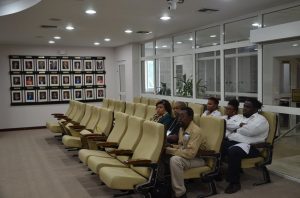Minister Gordon-Carty talks about work permit policy and abuse
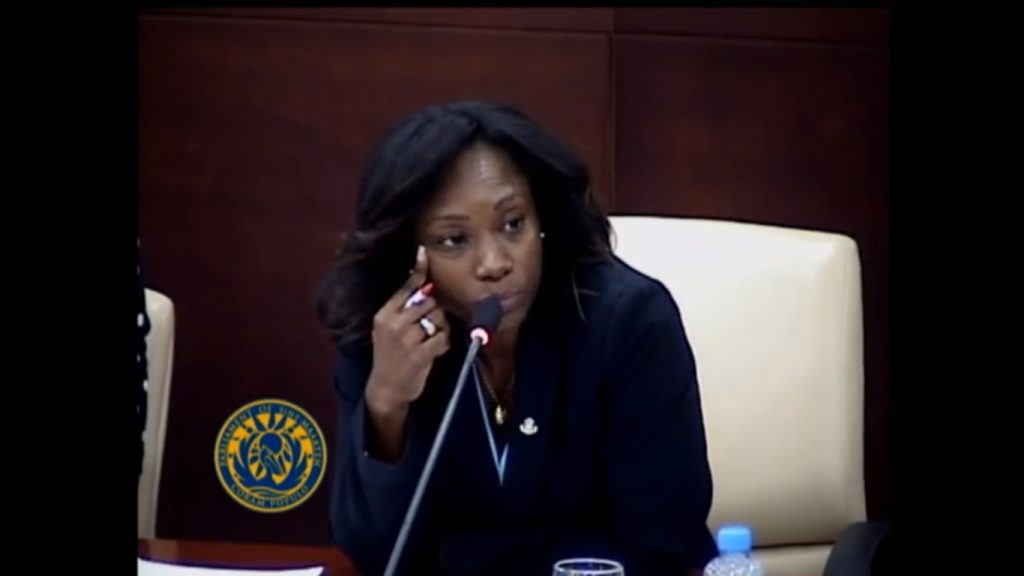
“We don’t need data for it because we can see it.” says Minister Pamela Gordon-Carty on the issue of work permit policy and abuse.
PHILIPSBURG – Members of parliament agreed about one thing during Monday afternoon’s debate about Labor Minister Pamela Gordon-Carty’s work permit policy: locals deserve a fair chance in the job market. But they had plenty of questions about the effectiveness of the policy and about the way the minister put it in place.
“I believe in this policy,” Gordon-Carty said. “It is hard to believe that this policy is being criticized. All countries protect their local market and investors won’t stop investing because of this policy; that is far-fetched.”
The minister said that the 2018 labor survey shows that there are 6,636 unemployed people, while the Consumer Coalition recently presented a much higher number: 11,520.
It is unclear where these numbers come from. The labor survey the minister refers to mentions only 2,296 unemployed, a distinct increase of 65.5 percent over the 1,387 from 2017. The survey put the population in 2018 at 40,614, the labor force at 23,146 and the employed population at 20,850 (elsewhere the study mentions a slightly different number, 20,760). The number of economically inactive people was 9,429 in 2018; the majority of these people are either retired or still studying.
Minister Gordon said that her unemployment figures are “an alarming reason to use the work permit policy.” She also said that there is “ethnical and cultural recruiting taking place,” labeling this practice as discrimination in the labor market. She also said that the number of requests for work permits she has seen since she took office on October 29 of last year is “alarming.”
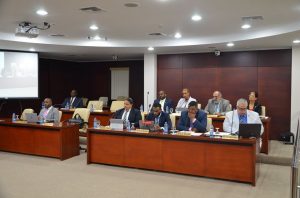 Later, MP Sarah Wescot-Williams noted that the number of work permit requests in 2018 was 1,431 and that 313 of those requests (21.9 percent) are for the adult entertainment industry – in other words, for prostitutes. Of the remaining 1,101, 634 were first requests, 432 renewals and 35 were requests for changes. Of all requests, 1,387 were granted.
Later, MP Sarah Wescot-Williams noted that the number of work permit requests in 2018 was 1,431 and that 313 of those requests (21.9 percent) are for the adult entertainment industry – in other words, for prostitutes. Of the remaining 1,101, 634 were first requests, 432 renewals and 35 were requests for changes. Of all requests, 1,387 were granted.
That the work permit policy requires employees of the National Employment Service Center (an entity within the department of labor affairs) to sit in at job interviews is “a little extreme,” MP Omar Ottley observed.
MP Melissa Gumbs asked how many of the unemployed are locals and how many are non-locals, while Ottley wanted to know whether locals are born in St. Maarten or Dutch passport holders.
Minister Carty later made clear that the definition of locals is much wider: “They are individuals who have the right to live and work in the country.”
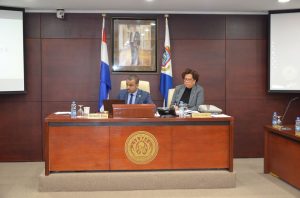 MP Rolando Brison, the president of parliament, asked whether the policy has been tested against the national ordinance for data protection and privacy and whether the ministry had obtained advice from the Social Economic Council (SER). He also asked why the counterpart rule was not considered, noted that government-owned companies also import foreign labor and that the labor survey includes illegals.
MP Rolando Brison, the president of parliament, asked whether the policy has been tested against the national ordinance for data protection and privacy and whether the ministry had obtained advice from the Social Economic Council (SER). He also asked why the counterpart rule was not considered, noted that government-owned companies also import foreign labor and that the labor survey includes illegals.
Minister Carty said earlier that the labor survey only includes people who are registered at the Census Office, but Brison pointed out that the survey does not contain a single question about the registration of participants. “This policy is very well intended but not well thought out,” he said.
Minister Gordon said that the policy is not new, a statement contested by MP Wescot-williams but later confirmed by the head of the labor department, Peggy Ann Dros: “It has been standard operation procedure for at least eight years but it was never before published as a policy.”
The minister furthermore said that she had taken advice from her team of four attorneys and that they had told her that asking advice from the SER or the tri-partite committee was not necessary. Brison contested that with a reference to the main task of the SER: to provide the government with solicited and unsolicited advice on all important social and economic issues.
Without providing any hard evidence, the minister maintained that the policy is “well thought out,” adding that “If people get a chance to abuse a system they will abuse it. That is what has been happening.”
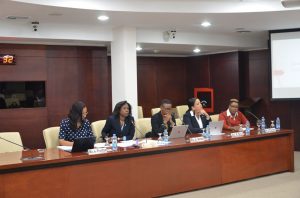 As an example she mentioned a work permit request from a Jamaican employer for a fashion consultant who turned out to be looking for a hairdresser “To look for a hairdresser in Jamaica, I find that discriminatory,” the minister said. “The system is being abused and we have to put a stop to it. We don’t need data for it because we can see it.”
As an example she mentioned a work permit request from a Jamaican employer for a fashion consultant who turned out to be looking for a hairdresser “To look for a hairdresser in Jamaica, I find that discriminatory,” the minister said. “The system is being abused and we have to put a stop to it. We don’t need data for it because we can see it.”
Dros later mentioned a vacancy for an ICT-expert. The labor office had a suitable local candidate but the company did not hire him. Instead, it applied for a work permit that was subsequently refused. The company went to court, won and hired the (foreign) candidate it wanted.
Furthermore, the minister said that “60 to 70 percent of foreign workers send money abroad. Locals contribute more to the economy.”
###
Related articles:
Former Minister Emil Lee: “New policies should be based on facts and consultation” Says “It has to be done in partnership with stakeholders, labor, employers and government.”
Editorial: Following procedures the new norm?












